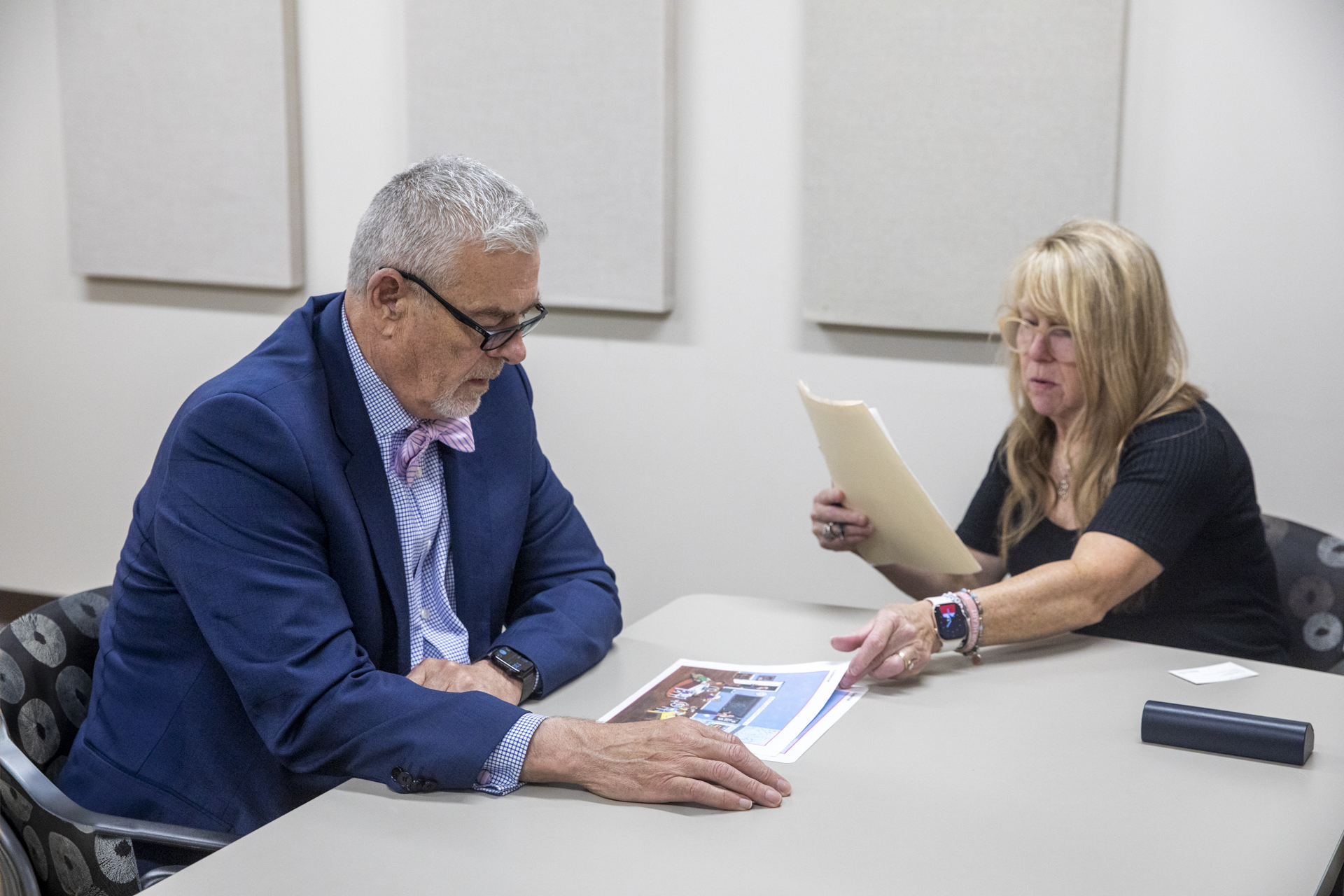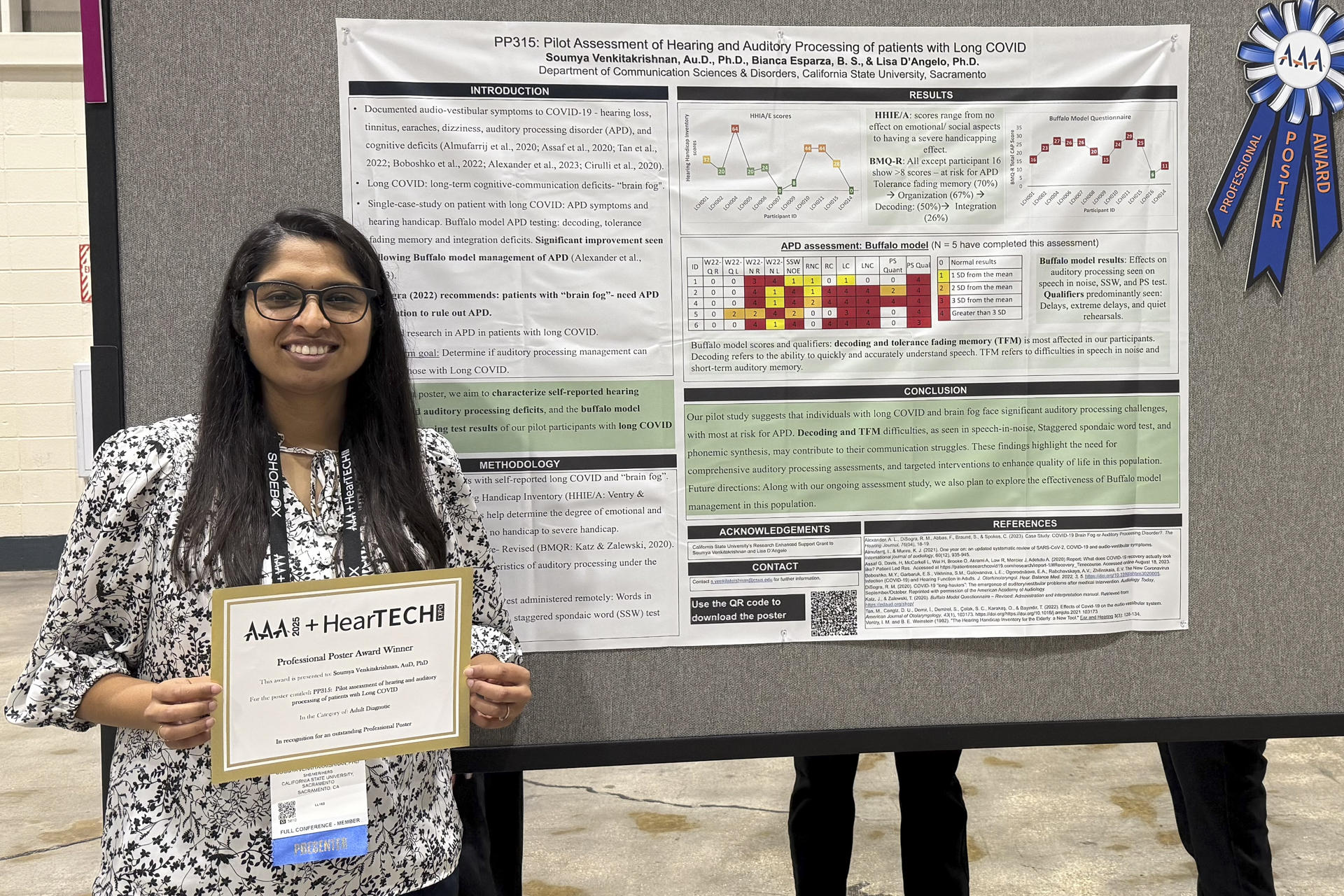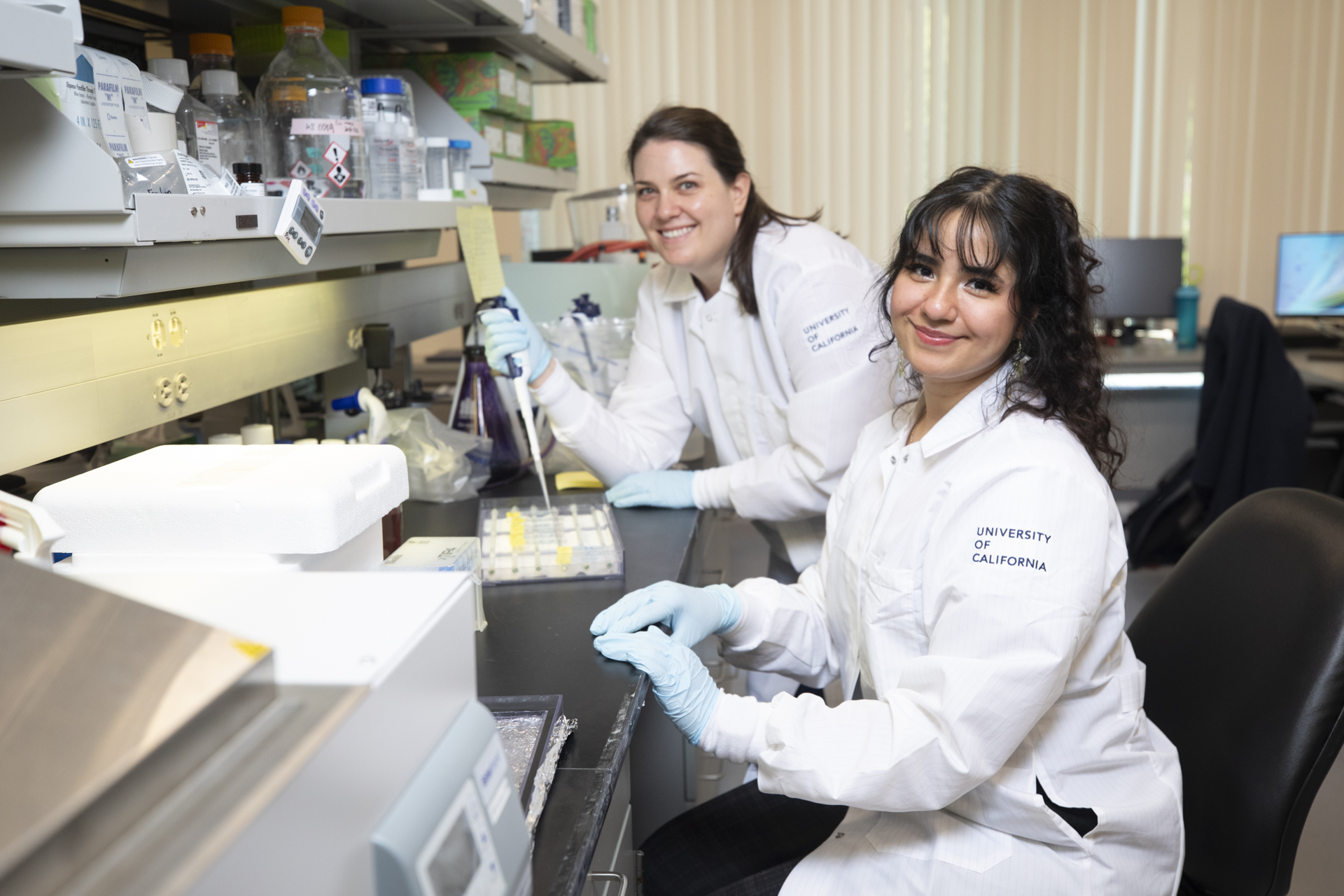Story Content
Sac State researchers study long COVID’s impact on hearing, 'brain fog'

April 24, 2025
Months or even years after recovering from their initial infections, many COVID survivors still suffer from a host of lingering illnesses. Their thinking is sometimes foggy. They have memory deficits and hearing and speech difficulties, among other issues.
New research from Sacramento State faculty, however, may provide hope.
A pair of Sac State professors are studying the link between such symptoms and COVID infection and providing therapy that typically is used to treat patients with brain injuries and auditory processing problems.
Though the study is in its early stages, the approach seems to be working for some participants.
“So far, it looks really promising,” said Lisa D’Angelo, an associate professor of Communication Sciences and Disorders. “People’s scores on cognitive assessment are significantly improving.”
Long COVID is a chronic condition triggered by the virus that causes COVID-19, which spawned a global pandemic in 2020. More than 200 symptoms have been linked to long COVID, including extreme fatigue, “brain fog” and memory problems, dizziness, and changes in taste and smell.
The symptoms can be disabling, leaving some patients unable to function in their jobs or effectively communicate.
“We are working on conditioning the brain to make new connections based on what we are teaching. It’s a matter of them practicing, working on a skill, and applying it to their everyday lives.” -- Lisa D’Angelo, associate professor of Communication Sciences and Disorders
D’Angelo and Soumya Venkitakrishnan, an assistant professor of Audiology, are focusing on cognitive, hearing and communication deficits linked to long COVID. Beyond establishing a connection, however, the study also offers treatments that may help improve patients’ lives.
“Very preliminary data suggests that management of these symptoms is helping,” Venkitakrishnan said.
Ten to 15 patients who reported fighting “brain fog” after becoming infected by COVID are taking part in the pilot study.
“These are people who are telling us that they are different from who they were before COVID,” said D’Angelo. Some said they had to leave their jobs because of ongoing symptoms.
Participants fill out a survey about their COVID history and lingering symptoms, undergo audiology testing, and receive extensive cognitive and communication assessments from the researchers.
The professors document symptoms including memory lapses, problems with information retention, and inability to concentrate. After multiple assessments, the patients receive a series of treatment sessions focusing on their individual needs.
The sessions, based on therapy used to treat patients with head trauma and auditory processing disorders, prompt the brain to create or repair neural connections leading to improved quality of life and increased independence. Sessions might involve patients listening to a list of words or briefly looking at a picture, and then recalling details.
(Story continues below the image.)

In other tests, patients listen to words or sentences, then repeat them to gauge speech patterns and hearing issues.
“We are working on conditioning the brain to make new connections based on what we are teaching,” said D’Angelo, who has conducted research on brain injury and recovery. “It’s a matter of them practicing, working on a skill, and applying it to their everyday lives.”
D'Angelo and Venkitakrishnan said the study is one of only a few that have explored hearing issues related to COVID. It also is among a handful of studies that have included treatment.
The Sac State professors hope to expand their research in the future, possibly using scans to detect changes in the brain before and after therapy.
Rory Barney, a Sacramento financial advisor, contracted COVID in late 2023 and has suffered from sinus infections, hearing loss and “brain fog” since then. While he joined the Sac State study hoping to get relief, he also wants to contribute to research that ultimately may help others.
“I have a very intellectual job, and for a while I just couldn’t do it,” Barney said. “The worst part was not being able to fulfill my obligations.”
Along with medical interventions for his sinus and hearing issues, the Sac State therapy sessions have made a notable difference.
During a recent assessment, D’Angelo measured Barney’s visual and working memory using both pictures and word sequences. He tackled problems that he was unable to solve when he joined the study about eight months ago.
“When I started this, I was considerably impaired,” Barney said. “I consider myself slightly impaired now.” He is back to his high-powered job and feeling better overall.
“I’m still trying to get back to where I was before COVID, and I will,” Barney said. “But this has helped me a lot, and I’m very grateful.”
Media Resources
Faculty/Staff Resources
Looking for a Faculty Expert?
Contact University Communications
(916) 217-8366
communications@csus.edu


